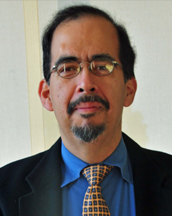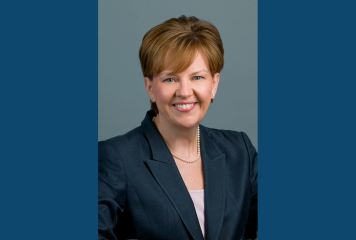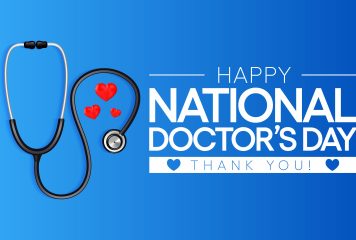Voices that Transform ABIM: Rudolph A. Rodriguez, MD
October 15, 2020 | Posted by ABIM | Uncategorized
 This Latinx Heritage Month, we are proud to introduce the new Chair of ABIM’s Nephrology Board, Rudolph A. Rodriguez, MD. Board certified in Internal Medicine and Nephrology, Dr. Rodriguez is Professor of Medicine, Nephrology at the University of Washington, and Director of Hospital and Specialty Medicine at Puget Sound VA Health Care System in Seattle, Washington.
This Latinx Heritage Month, we are proud to introduce the new Chair of ABIM’s Nephrology Board, Rudolph A. Rodriguez, MD. Board certified in Internal Medicine and Nephrology, Dr. Rodriguez is Professor of Medicine, Nephrology at the University of Washington, and Director of Hospital and Specialty Medicine at Puget Sound VA Health Care System in Seattle, Washington.
You’ve co-authored several articles that explore racial and ethnic disparities in kidney disease. What motivated you to be a part of this work?
Social justice issues motivated me to enter the medical field and influenced most of my career decisions including the articles I have written on topics such as undocumented immigrants on dialysis and the impact of residential segregation.
Follow up: What, in your opinion, has been the most impactful finding?
A paper I co-authored—and subsequent papers by others—highlighting the poor outcomes of patients on dialysis living in segregated neighborhoods. I recently gave medical grand rounds for the Department of Medicine at the University of Washington and the title of the talk was “Geography Matters!: Residential Segregation, Race, and Health Outcomes.” It had been over 10 years since I published the paper on residential segregation and dialysis/transplant outcomes, and I wanted to review the general literature on the topic. I have always found the topic of residential racial segregation very disturbing and haunting, especially due to the lack of progress in dismantling segregation.
Does being represented motivate racial, ethnic or gender minorities to enter the medical field?
We all have different motivations for entering the medical field, but once in medicine, racial, ethnic and gender minorities tend to serve and conduct research in these vulnerable populations in higher numbers than others. The lack of diversity in the medicine is truly inexcusable. The lack of diversity in nephrology is especially disheartening given the substantial racial disparity of kidney disease in Black, Native American, Pacific-Islander, Asian, and Latinx communities.
Is it important that physicians reflect the communities they serve?
No one would argue that physicians shouldn’t understand the communities they serve. Understanding the culture, language, and customs will allow physicians to serve the community skillfully and with respect. The University of Washington School of Medicine’s Center for Health Equity, Diversity and Inclusion offers a Latinx Health Pathway. This Pathway offers educational opportunities and experiences to medical students and I organize the lecture series component of the pathway. Only 30-40% of the students are usually Latinx but all the students are interested in becoming better prepared to provide culturally competent care to the Latinx population. Along with building a more diverse workforce, educational opportunities and experiences are also important for physicians to serve diverse and vulnerable populations.
What has been the proudest moment in your career?
I spent about 16 years total serving as a nephrology fellowship program director: eight years at the University of California San Francisco and then eight years at the University of Washington. My heart is filled with joy witnessing the success of former fellows in their medical and personal lives around the nation. Some of the former fellows remain some of my most valued friends.
When you talk to others about the work you do, what do you talk about?
My patients. The patients I have served in my career are incredibly interesting. The patient stories from my time at San Francisco General Hospital tell the history of San Francisco: stories about the HIV/AIDS era, immigrant stories, or proud stories from native San Francisco residents. Currently, the stories from the Veteran community are always inspiring stories from those who chose to serve their country.
Why did you want to serve on ABIM governance?
Due to my experience as an educator, I noticed many parallels in the work of ABIM and my experience as a fellowship program director. As I transitioned from the program director role to a medicine service chief position, I also noticed similar goals and challenges when managing physicians in a health care system. Serving on ABIM governance has given me the opportunity to sit at the table and express the concerns of the communities I serve and to hopefully contribute to the mission of the ABIM.
What’s something you didn’t know before joining an ABIM board?
I didn’t know the depth and breadth of psychometric science behind the ABIM Maintenance of Certification (MOC) and Certification Examination process. Most ABIM board and committee members are usually surprised and impressed by the professionals behind the development and standard-setting for these exams. I have also been impressed by the ABIM as an organization which works diligently to incorporate diverse voices into the organization including patient voices.
What’s the best thing about serving on an ABIM board?
The camaraderie that develops between the ABIM staff and fellow board and committee members.
What’s the most challenging thing about serving on an ABIM board?
Medicine is changing rapidly, and ABIM is also changing rapidly to accommodate the needs of the physician and patient community. This rapid change is especially difficult in the age of COVID-19, the economic hardships, and the racial awakening in the country at this time.
I would encourage someone else to join ABIM governance because:
I believe in the work of the ABIM and in the mission of the ABIM.
What are your interests outside of medicine?
Outside of medicine, I enjoy spending time with my wife, son, and daughter. I treasure family and friends. I also enjoy reading and collecting disturbing art.
What’s something your colleagues may not know about you?
Although I was born and raised in San Francisco, my parents were immigrants from El Salvador. The Latinx community is very heterogeneous, and our stories are sometimes connected to countries like El Salvador, countries with violent and difficult histories.



